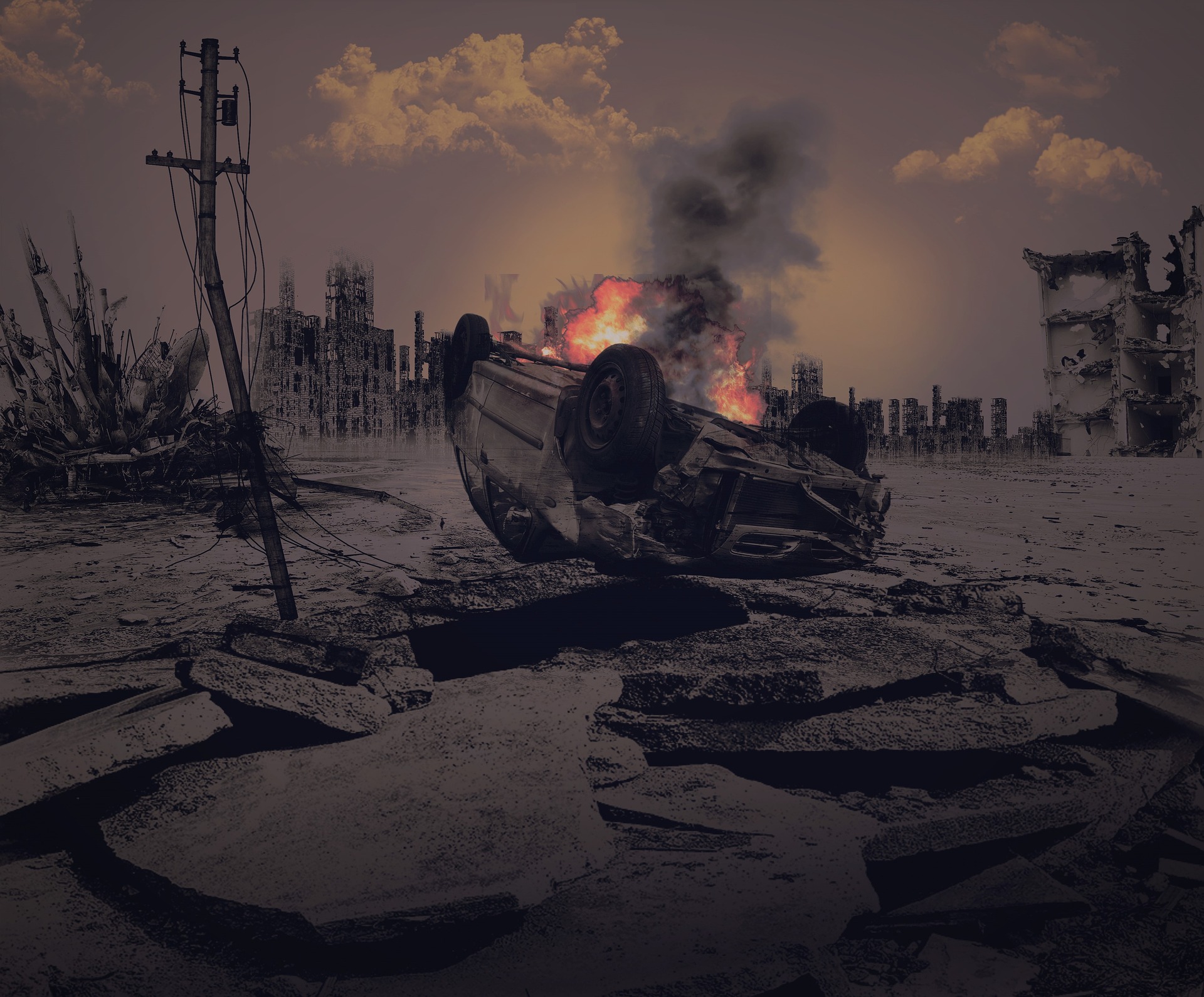I read in the New York Times some weeks ago that there are increasing numbers of young couples getting married with the intention of not��having children. And their decision is not a selfish one, to spare themselves the enormous task and cost of parenting, but in many cases a sad and joyless one. The reason they give is that they cannot bear to bring children into the world, because they are so afraid of what the earth’s climate is going to be like in the lifetime of any child born today.
I don’t think I had that fear when my wife and I rejoiced in God’s gift of four children forty years ago now, but what about our grandchildren? Like that Christian bookseller, we have ‘10 of Those,’ and to be honest I am indeed fearful for what they may be facing by the middle of this century.
 We live in an age of increasing international chaos, with a new rise of deeply worrying authoritarianism in political leaders – the seeds and signs of last century’s fascism, ethnic hatreds, truth-shredding propaganda, and brute force. We face terrorism, unending wars – seen (as in Syria) and unseen (as in D.R. Congo)– diabolical acts of cruelty and suffering, with whole populations of refugees on the move or stuck in hellish unwantedness by anyone.
We live in an age of increasing international chaos, with a new rise of deeply worrying authoritarianism in political leaders – the seeds and signs of last century’s fascism, ethnic hatreds, truth-shredding propaganda, and brute force. We face terrorism, unending wars – seen (as in Syria) and unseen (as in D.R. Congo)– diabolical acts of cruelty and suffering, with whole populations of refugees on the move or stuck in hellish unwantedness by anyone.
And on top of all that (and exacerbating some of it) is the threat of climate break-down and human pollution. By the time our grandchildren are middle-aged, we’re told, there could be more plastic than fish in our oceans. Whole swathes of low-lying and densely populated countries may disappear under water, generating even more massive migrations, and some parts of the world may become simply as uninhabitable as the Sahara through unprecedented climate extremes. Water wars are already happening.
Contemplating such scenarios, I turn to Habakkuk and Psalm 46 – Habakkuk, because he tells us that he was afraid when he heard what lay ahead (Hab. 3:16), and Psalm 46, because it says that “we will not fear.” The first is natural, and the Bible allows it. The second is supernatural and calls for a careful look at God’s Word. Here are four truths about God that I take from these scriptures, with four matching responses that we are called to make.
1. God remains sovereign, so we are to live by faith.
 Psalm 46 contemplates both the turbulence of nature (vs. 2-3), and the tumult of the nations (v. 6). But over all, God is in charge. It is not at all easy to hold on to this when so much in the world seems to deny it, yet it is a crucial part of our core Christian and biblical conviction. We can believe in the sovereignty of God more easily looking back at how his plans have worked out over centuries of history. Much harder when catastrophe is staring you in the face, as Habakkuk found. Yet God told him, as he struggled to make sense of what God was doing, that ‘the righteous person shall live by their faith’ (Hab. 2:4) – not just faith to get saved by, but faith to live by now. Are we really trusting God for the unknown future?
Psalm 46 contemplates both the turbulence of nature (vs. 2-3), and the tumult of the nations (v. 6). But over all, God is in charge. It is not at all easy to hold on to this when so much in the world seems to deny it, yet it is a crucial part of our core Christian and biblical conviction. We can believe in the sovereignty of God more easily looking back at how his plans have worked out over centuries of history. Much harder when catastrophe is staring you in the face, as Habakkuk found. Yet God told him, as he struggled to make sense of what God was doing, that ‘the righteous person shall live by their faith’ (Hab. 2:4) – not just faith to get saved by, but faith to live by now. Are we really trusting God for the unknown future?
2. God will protect his people, so we are to live without fear.
The first two verses of Psalm 46 have been an anchor for God’s people in so many times of apparent calamity. ‘God is with us…we will not fear.’ Now this did not mean, then or now, that faithful Israelites or Christians never suffer or get killed. We know they do, sometimes gruesomely in our day. But ‘the Lord knows those who are his,’ and nobody can rob us of eternal life and our future with God in the new creation. We can, like Habakkuk, tremble at what may lie ahead, but we know that with God the security of his people is eternal. ‘God is in the midst of her, she will not fall…the Lord Almighty is with us, the God of Jacob is our fortress’ (Ps. 46:5-7). ‘Fear not,’ is the Bible’s most frequently repeated command.
 3. God works out his judgments in history, so we are to live by prayer.
3. God works out his judgments in history, so we are to live by prayer.
‘Come and see what the Lord has done,’ invites Psalm 46:8, and immediately talks about war, and then the ending of all war. He sees the hand of God both in the horrible process of history, and in the ultimate goal of history, when God blows the final whistle, “Be still…!” Habakkuk knew of the evils of the Babylonians – and so did God, and declares very sharp judgment upon their global plundering, violence, injustice, environmental destruction, and idolatry (Hab. 2:6-19). But in and through God’s judgment, Habakkuk knows that the day will come when ‘the earth will be filled with the knowledge of the glory of God as the waters cover the sea’ (Hab. 2:14). With that vision and insight, Habakkuk turns to prayer (Hab. 3) – celebrating God’s past deeds, honestly expressing his fear in the present, but rejoicing in the security of God’s future. The early Christians had the same response in Acts 4.
4. God will be exalted among the nations and on the earth (Psalm 46:10), so we are to live for mission.
You notice, it does not just say God will be exalted among the angels up in heaven. The great biblical story is that God will bring people from all nations to share in the glory of his kingdom, and he will reign in the new creation – the new heaven and new earth of Revelation 21-22. The Israelites had to learn that, even in exile in Babylon under God’s judgment, and even though they knew that Babylon itself stood under God’s imminent judgment, they had a mission to pray for and seek the welfare of the people around them (Jer. 29:7). God’s Abrahamic mission goes on. So, no matter what the world will be like in our children’s and grandchildren’s lifetime, and no matter what form the judgments of God on our fallen and idolatrous societies will take, we are not exempted from living and working for the great biblical mission of God, in God’s world, for God’s glory. We do that in our daily work, in our families and neighbourhoods, in our service of church and society, and in seeking first the kingdom of God and his justice. And we go on praying that God will use the ministries of Langham Partnership to strengthen his church through the effective teaching and preaching of God’s Word, for whatever lies ahead.
This article first appeared in LPUKI’s Transform Magazine, Spring 2018. If you would like to receive a copy, email uk@langham.org. Read the latest edition online.
